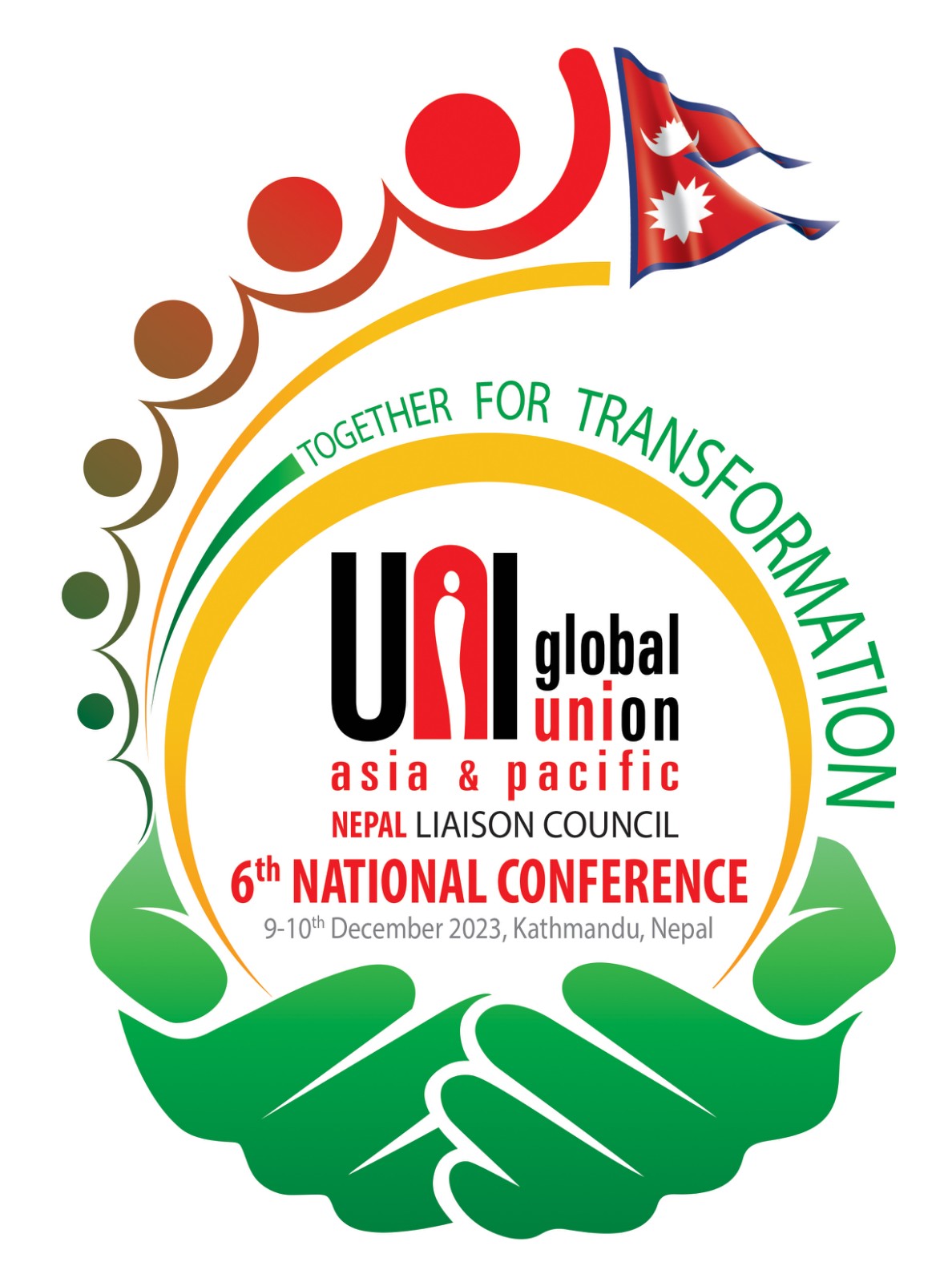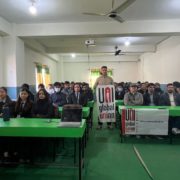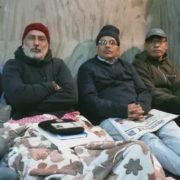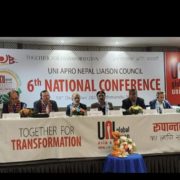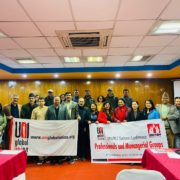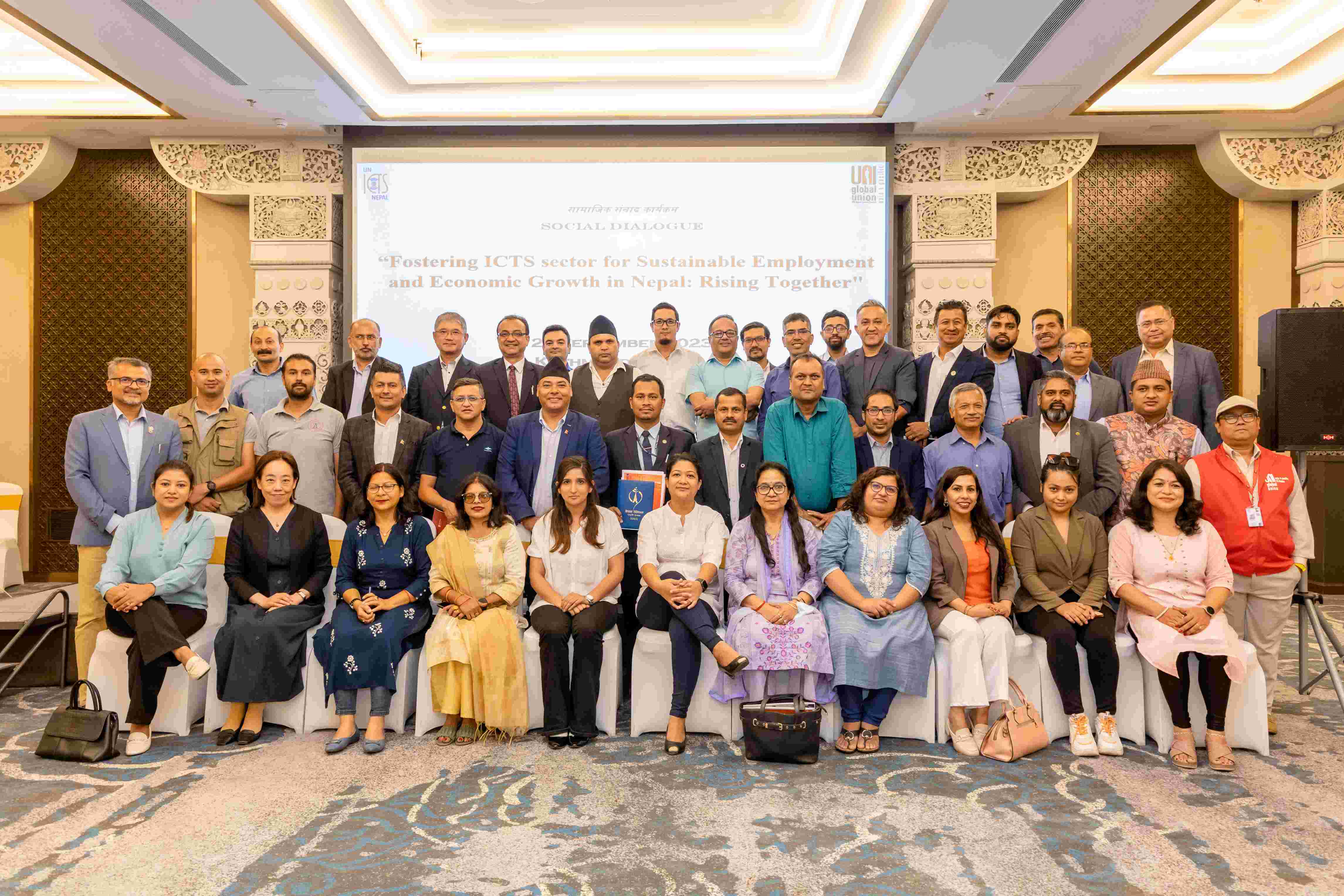Introduction: The Social Dialogue event, under the theme “Fostering ICTS Sector for Sustainable Employment and Economic Growth in Nepal: Rising Together,” was inaugurated by Mr. Alok Malla, who expressed his aspiration for the event to catalyze the development of the ICT sector and contribute to the long-term progress of Nepal. The event commenced with Mr. Malla presiding over the proceedings.
Opening Address by Khusal Regmi: Mr. Khusal Regmi, the General Secretary of UNICTS, extended a warm welcome to all distinguished guests and participants at the Social Dialogue event. He underscored the invaluable contributions of skilled IT freelancers to Nepal’s economy, highlighting that the nation had exported IT services worth 69 billion Nepali rupees. However, Mr. Regmi also highlighted a pressing challenge within the sector: the absence of social security for many freelancers, leading to a high turnover rate. These challenges were slated for discussion during the social dialogue, emphasizing the event’s overarching objective of fostering sustainable growth in Nepal.
Rajendra Acharya’s Address: Mr. Rajendra Acharya, the Regional Secretary of UNI APRO, delivered an impassioned address during the event. He acknowledged the global crisis and its adverse impact on the world economy, stressing the importance of dialogue to resolve these pressing issues. Mr. Acharya emphasized the collaborative nature of social dialogue, which brought together employers, government representatives, and trade unions. He emphasized the necessity of sector-specific dialogues and commended the efforts of Nepali trade unions in this regard. Mr. Acharya emphasized that pain existed across every sector, from business to government, and advocated for inclusivity to achieve sustainable development. He also highlighted the importance of dialogue with stakeholders to foster better development and emphasized the need for job creation in Nepal.
Rekha Sharma’s Insights: Ms. Rekha Sharma, the Minister of Information and Communications Technology Services (ICTS), addressed the attendees. She underscored the ever-evolving nature of the IT sector, emphasizing the crucial role it played in Nepal’s economic development. Ms. Sharma elucidated the government’s priorities, with a focus on IT production and employment, as well as the imperative for social justice. She articulated the significance of the conclusions drawn from the social dialogue, indicating that the government would consider and implement the suggestions put forth to enhance the ICTS sector further. Ms. Sharma also noted the government’s support for entrepreneurship and online initiatives and disclosed plans to augment employment opportunities, inviting suggestions from the participants.
Keynote Speaker – Manish Pokhrel: Dr. Manish Pokhrel, the Dean of the School of Engineering at Kathmandu University, delivered an enlightening keynote address, offering valuable insights into the development of the ICT sector.
Dialogue Session: The Dialogue Session, chaired by Mr. Krishna Bahadur Raut, Secretary of the Ministry of Information and Communications Technology (MoICT), revolved around the theme “Rising Together for the Development of the ICT Sector in Nepal.” This session featured presentations by Dr. Manish Pokharel and Dr. Biswash Gauchan, which provided an in-depth understanding of the challenges and opportunities in the ICT sector.
Social Dialogue Session: The Social Dialogue Session was the heart of the event, bringing together a diverse group of stakeholders committed to addressing the challenges and opportunities within Nepal’s ICT sector. Here, participants engaged in robust discussions on several critical dimensions:
Government Representatives:
- Mr. Prem Sharan Shrestha, DG Department of IT (Government Representative): Mr. Shrestha elaborated on the government’s ICT policies, emphasizing regulatory measures and strategies to support the sector’s growth.
- Mr. Achyudananda Mishra, NTA (Government Representative): Mr. Mishra detailed the role of the Nepal Telecommunications Authority (NTA) in regulating and advancing telecommunications infrastructure and services within the ICT sector.
Employer Representatives:
- Mr. Ranjeet Kumar Poddar, President, CAN Federation (Employer Representative): Mr. Poddar discussed the challenges and prospects encountered by businesses operating within the ICT sector, underlining the private sector’s role in driving sectoral growth.
- Mr. Sudhir Parajuli, President ISPAN (Employer Representative): Mr. Parajuli provided insights into the pivotal role played by Internet Service Providers (ISPs) in expanding internet accessibility and services, along with the associated challenges.
- Mr. Richan Shrestha, President, NAS IT (Employer Representative): Mr. Shrestha shared the experiences and perspectives of IT service providers, particularly in the domains of software development and IT services.
- Mr. Hitesh Karki, Chairman, Deerwalk Group Ltd (Employer Representative): Mr. Karki, as an entrepreneur, conveyed the experiences and challenges faced by ICT startups and businesses.
Experts:
- Dr. Biswash Gauchan, Executive Director, IIDS (Expert): Dr. Gauchan offered insights into the broader economic and societal ramifications of ICT sector development, presenting research findings and policy recommendations.
- Mr. Vivek Shamser Rana, Information Technology Enablement Professional (Expert): Mr. Rana delved into technological trends and innovations within the ICT sector, elucidating their potential impact on Nepal’s economy and employment landscape.
- Mr. Manohar Kumar Bhattarai, Chairperson, ICT4Development (Expert): Mr. Bhattarai emphasized the role of ICT in driving social and economic development, emphasizing the necessity of equitable technology access.
- Dr. Manish Pokharel, Dean, School of Engineering, Kathmandu University (Expert): Dr. Pokharel, as an academic expert, contributed insights into the educational facets of the ICT sector, including workforce development, research, and collaborative opportunities.
Representatives from Trade Unions:
- Mr. Ganesh KC, President, NTUC (Representative from Trade Union): Mr. KC represented the Nepal Trade Union Congress (NTUC) and discussed the interests and concerns of ICT sector workers, with a focus on job security, labor rights, and social protections.
- Mr. Binod Shrestha, President, JTUCC/GFONT (Representative from Trade Union): Mr. Shrestha, representing the Joint Trade Union Coordination Centre (JTUCC) and Global Federation of Nepali Trade Unions (GFONT), highlighted collective bargaining efforts and workers’ demands in the ICT sector.
- Shalik Ram Kaphle, ANTUF (Representative from Trade Union): Mr. Kaphle, representing the All Nepal Trade Union Federation (ANTUF), discussed the role of trade unions in advocating for ICT sector employees’ welfare and rights.
- Mr. Shankar Lamichhane, President, UNICTS: Mr. Lamichhane, as the President of UNICTS, presented specific perspectives and concerns of ICT sector professionals and sought to address these issues through social dialogue.
- Mr. Tilak Jung Khadka, Organizing Coordinator – UNI APRO: Mr. Khadka, in his capacity as the Organizing Coordinator of UNI APRO, contributed to discussions on organizing and mobilizing ICT sector workers for collective action and advocacy.
Key Objectives of the Social Dialogue Session:
- Identification of key challenges within the ICT sector in Nepal, encompassing aspects such as employment, social security, regulatory frameworks, and skills development.
- Exploration of opportunities for sustainable growth and economic development within the ICT sector.
- Promotion of collaboration and cooperation among government, employers, experts, and trade unions to identify common ground and devise actionable solutions.
- Consideration of policy recommendations and initiatives to address the identified challenges and promote the development of the ICT sector.
- Advancement of inclusivity and equity within the ICT sector, ensuring that the benefits of growth are accessible to a wide spectrum of society.
Highlights of the Social Dialogue Session: During the Social Dialogue Session, several critical issues were discussed:
- Employment and Social Security: Participants acknowledged the need for job creation within the ICT sector while addressing the challenges faced by freelance workers who lack social security, leading to high turnover rates. Strategies to provide social safety nets for freelancers were explored.
- Government Support: The government’s role in facilitating ICT sector growth through policies, incentives, and regulatory frameworks was a key point of discussion. Participants deliberated on the importance of continued government support for the sector.
- Education and Skill Development: Emphasis was placed on the role of education and skill development in preparing a workforce that aligns with the demands of the evolving ICT sector. Strategies for enhancing educational programs and bridging skill gaps were explored.
- Inclusivity and Equity: Stakeholders underscored the importance of inclusivity in sectoral growth, advocating for the active participation of marginalized groups, including women and people with disabilities, in the ICT workforce.
- Private Sector Engagement: The private sector’s commitment to investment, innovation, and job creation was acknowledged, with discussions centering on ways to foster a conducive environment for private sector participation.
- International Collaboration: The potential for international collaborations and partnerships to boost Nepal’s ICT sector was explored, particularly in terms of knowledge exchange, technology transfer, and export opportunities.
Conclusion: The Social Dialogue event, “Fostering ICTS Sector for Sustainable Employment and Economic Growth in Nepal: Rising Together,” provided a vibrant forum for extensive discussions among key stakeholders. It facilitated robust dialogues, the exchange of expertise, and the emergence of actionable policy recommendations. These outcomes collectively hold the potential to redefine Nepal’s dynamic and sustainable ICT sector, ultimately benefiting the nation as a whole. The Social Dialogue Session, as a central pillar of the event, successfully united diverse perspectives in pursuit of a common vision for the sector’s growth and prosperity
